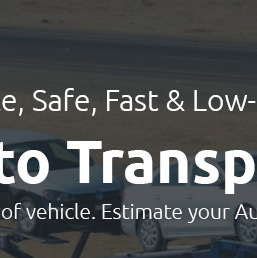 |
|
||||
 |
 |
 |
 |
||
 |
 |
|||||
 |
 |
 |
 |
 |
 |
 |
||
 |
 |
 |
 |
 |
 |
 |
 |
 |
 |
 |
|
 |
Understanding the Intricacies of Personal Vehicle ShippingThe process of personal vehicle shipping, often shrouded in a mystique akin to that of a clandestine operation, is a service utilized by many yet understood by few. At first glance, one might assume the logistics to be straightforward: a mere transportation of a vehicle from point A to point B. However, delve a little deeper, and you find an intricate web of considerations and decisions that can transform the entire experience. Firstly, there is the crucial matter of choosing the right shipping method. Broadly, one can opt for open or enclosed transport. Open transport, the more ubiquitous and economical choice, involves your vehicle being loaded onto a multi-car carrier. These carriers, often seen traversing highways, offer efficiency at the cost of exposure to elements. On the other hand, enclosed transport provides an additional layer of protection by shielding vehicles from weather and road debris, a preferred choice for luxury or classic cars. While more costly, enclosed transport offers peace of mind, a valuable commodity in any transaction. Equally important is the decision of whom to entrust with your vehicle. The market is replete with options, from large, well-known companies to smaller, niche operators. Each offers its own set of advantages and potential drawbacks. Larger companies might boast extensive networks and greater resources, while smaller firms often promise personalized service and attention to detail. A keen consumer will weigh these factors, along with reviews and recommendations, before making a decision. Once a provider is selected, the next step is to navigate the labyrinth of paperwork and preparation. This involves understanding the terms of the contract, ensuring insurance coverage is adequate, and preparing the vehicle for transport. This preparation can be as simple as removing personal items and ensuring the car is in good working order, yet these small steps are vital in preventing potential complications.
In conclusion, personal vehicle shipping is more than a logistical exercise; it is an endeavor that demands careful consideration, informed decisions, and a touch of patience. By understanding the nuances involved, consumers can navigate this complex process with greater confidence, ensuring their vehicles arrive safely and in the condition they left. As with any service, knowledge and preparation are key, empowering individuals to make choices that best suit their specific needs and circumstances. https://www.sherpaautotransport.com/routes/texas-car-shipping/houston/
Sherpa Auto Transport provides the premier car shipping experience with upfront, transparent pricing backed by our Price Lock Promise. https://acertusdelivers.com/houston-car-transport-company/
Enclosed auto transport is perfect for those shipping luxury cars, new cars from a dealership, and classic car enthusiasts. Our enclosed carrier will protect ... https://www.uship.com/vehicles/texas/houston/
Safety should always come first. Ensure that the car transport company holds the necessary licenses and insurance coverage to protect your vehicle throughout ...
|
